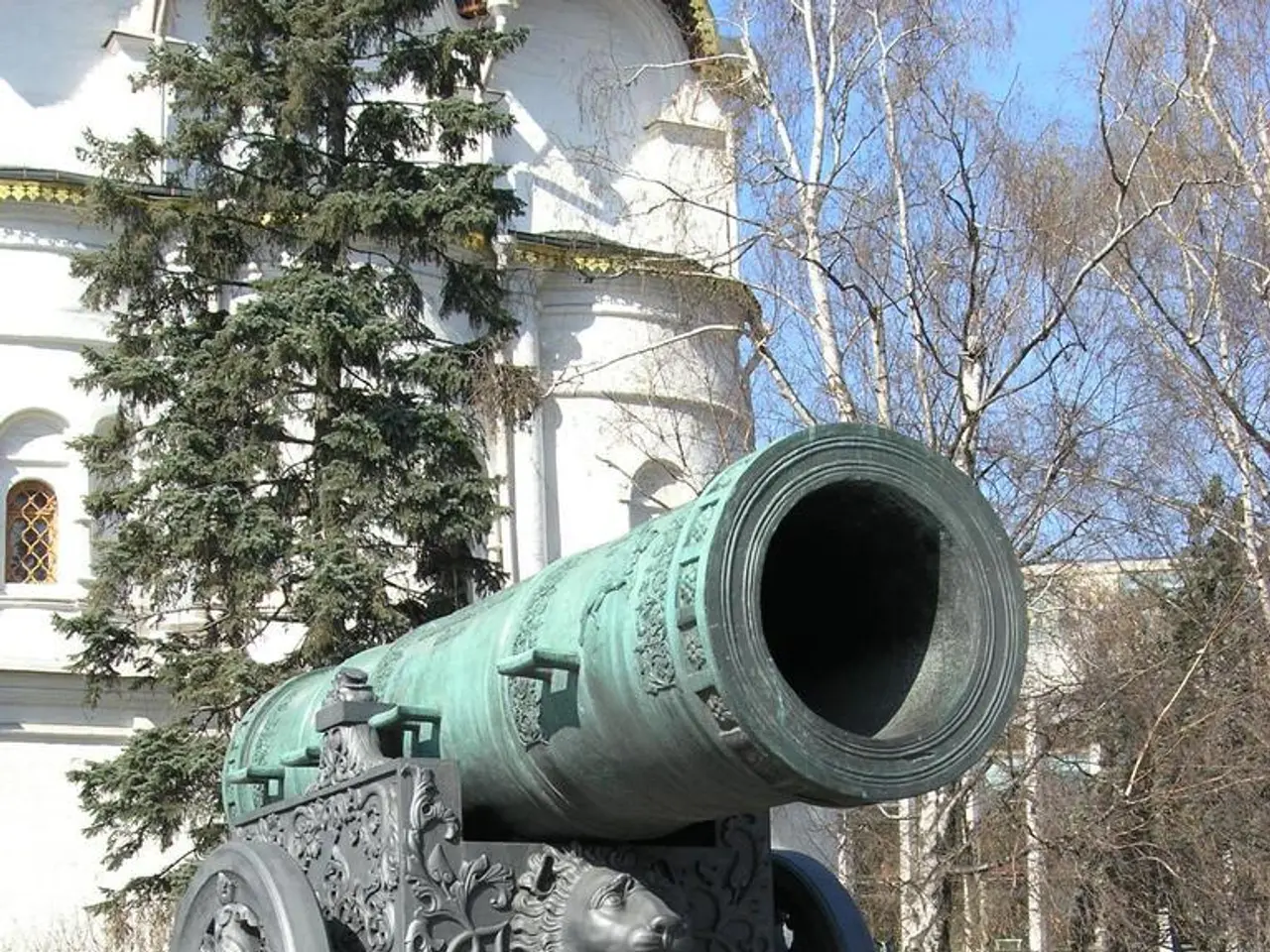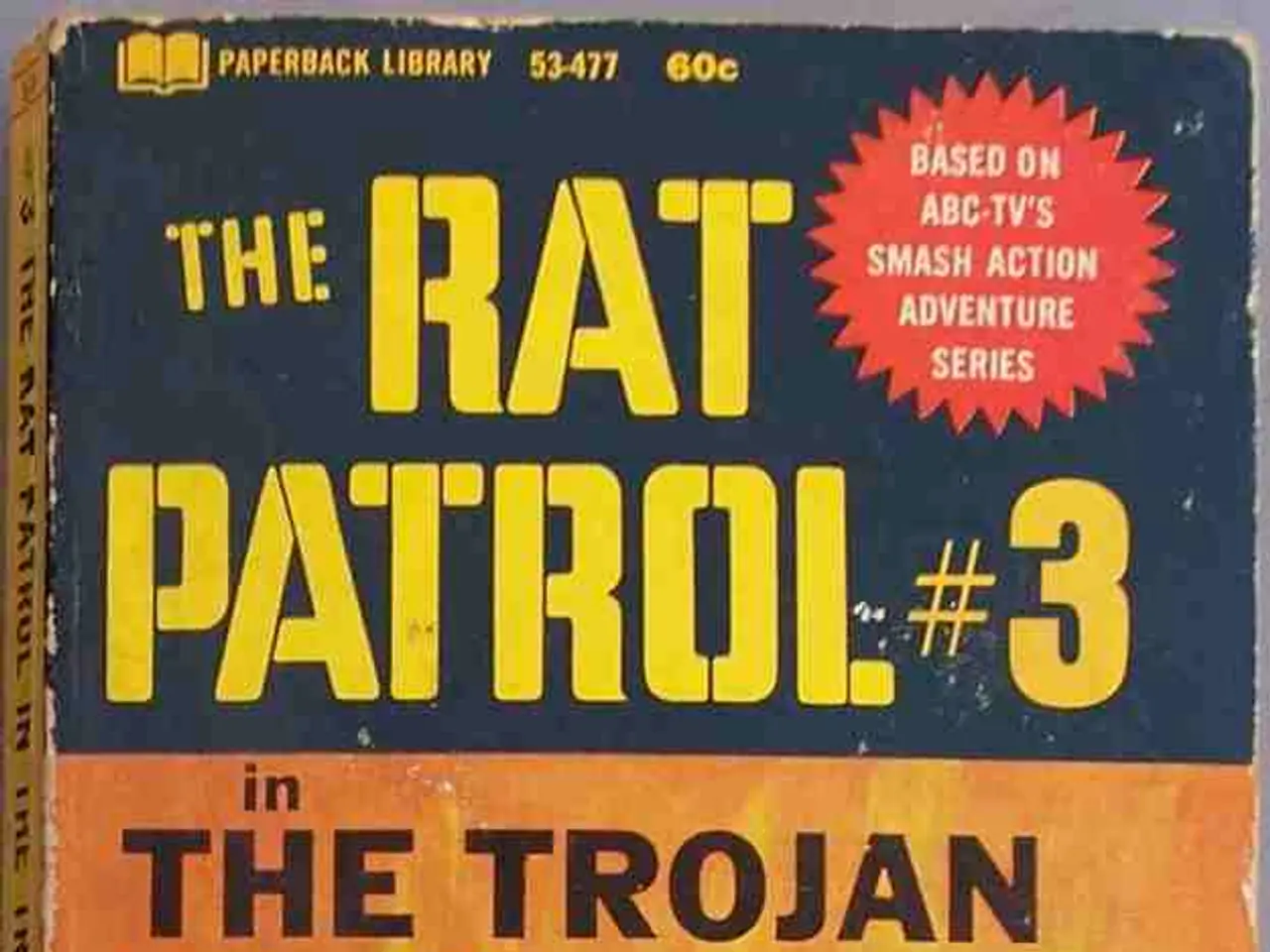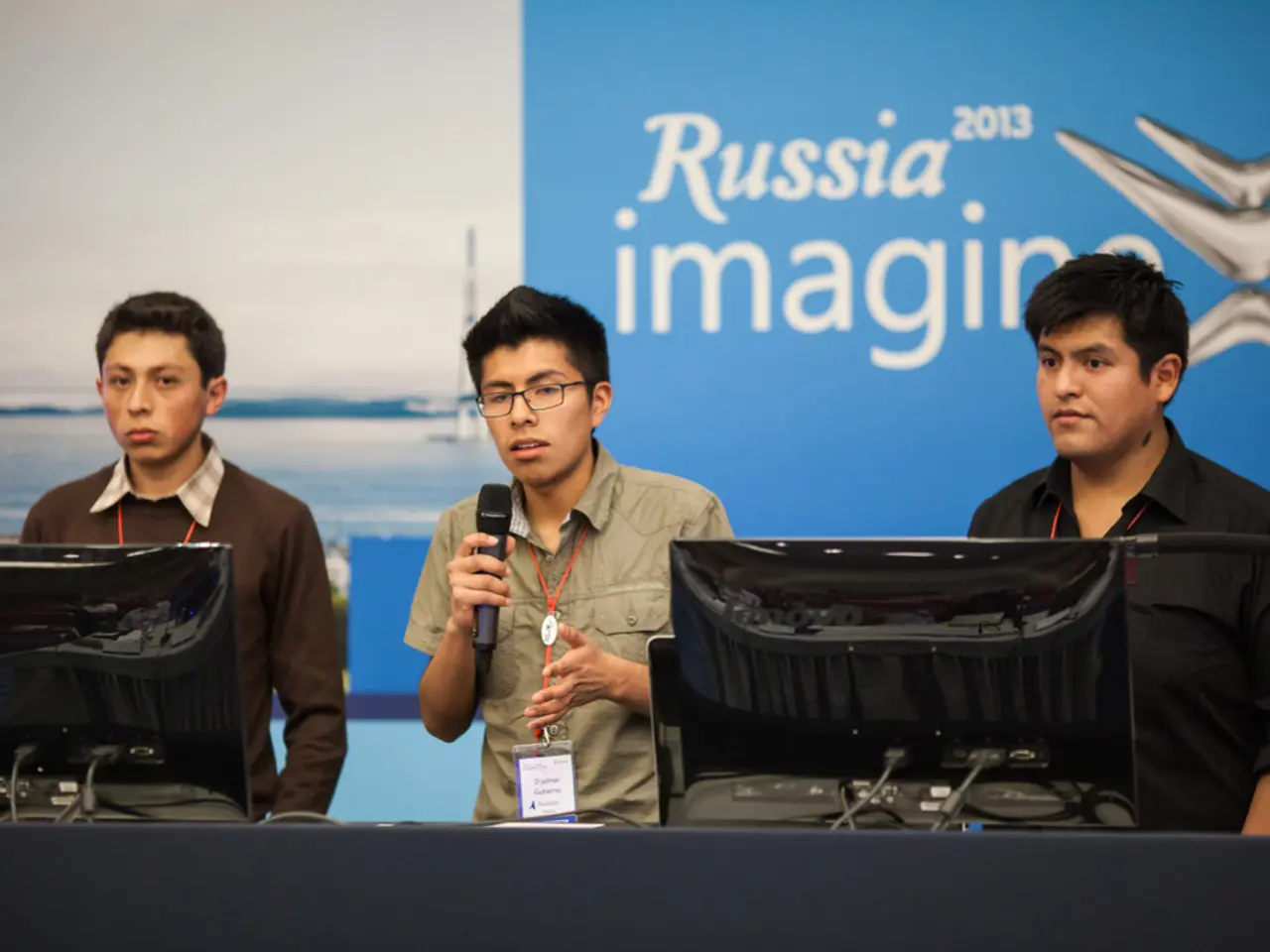In the Heart of the Conflict: Putin's Openness to Talks - Even with Zelensky
Dialogue open with Putin - Potential for Discussion with Zelensky - Open Dialogues Possible - even with Zelensky, reveals Putin
Approximately 3 Min Read
In a surprising turn of events, Russian President Vladimir Putin has expressed his eagerness for conversations with German Chancellor Friedrich Merz (CDU) and Ukrainian President Volodymyr Zelensky - under particular circumstances.
St. Petersburg's Cold Front: Russia and Germany
Putin, during an exchange with the news agency DPA in St. Petersburg, suggested that Russia would entertain contacts with Merz. In the ongoing tussle between Russia and Ukraine, Putin finds Germany less than an impartial mediator due to its military support for Ukraine, supplying tanks and getting directly involved in the conflict.
Germany-Russia relations have reached an all-time low. The recent election of Merz, criticized by Moscow for his hardline stance against Russia, is perceived as contributing to this chill. Moscow takes issue with the weapons deliveries to Ukraine, expressing concern regarding the provision of the Taurus cruise missile for attacks on Russian territory. Putin pointed out that German support won't alter the trajectory of the Ukrainian conflict.
The troubled relationship between Russia and Germany is dented by several questionable actions attributed to Russia, such as the 2015 hacker attack on the Bundestag, the 2019 murder of a Georgian by a Russian intelligence agent in Berlin, an arson attack on a cargo plane, and recent espionage acts against the Bundeswehr.
Eye-to-Eye with Zelensky: Putin's Conditions
Putin also expresses a readiness to confront Zelensky, underlining the importance of meaningful dialogue and the necessity to examine the legitimacy of his leadership, a topic he claims is often overlooked. According to Putin, any meeting with Zelensky would take place in the latter stages of negotiations, not at the outset. Putin is keen to avoid endless, fruitless talks to ensure a swift end to the conflict.
While showing openness to dialogues, Putin maintains Russia's long-standing demands, specifically: Ukraine must establish neutrality, relinquish Western military alliances, commit to nuclear non-proliferation, and recognize Russian dominion over the annexed and occupied regions (Donetsk, Luhansk, Kherson, and Zaporizhia oblasts).
Q&A with the West: Putin's Message Delivered
Vladimir Putin took the stage for a traditional question-and-answer session with Western journalists during the opening of the St. Petersburg International Economic Forum. Kremlin spokesman Dmitri Peskov explained that Putin designed this conversation to transmit Russia's perspective on the unfolding conflict and context to the world as clearly as possible.
The forum is instrumental in demonstrating Russia to the global community, defying the international isolation imposed by the West, and circumventing sanctions that Russia labels as illegitimate. The St. Petersburg International Economic Forum also provides a platform for conversations between Russia and the United States, following recent improvements in relations under U.S. President Donald Trump.
This year, the forum expects over 20,000 participants from 140 countries by Saturday, including numerous entrepreneurs and speakers from Western nations. Despite sanctions and restricted economic connections, Russia continues to flourish due to its war economy and commodity sales, managing inflation and high interest rates, making investment challenging.
- Vladimir Putin
- Volodymyr Zelensky
- Russia
- Friedrich Merz
- Ukraine
- Germany
- St. Petersburg
- Kremlin
- CDU
- Conflict
- Putin-Zelensky Meetings: According to Putin, a sit-down with Zelensky should occur only in the "final phase" of negotiations, aimed at finding a definitive, mutually agreeable resolution to the conflict.
- Russia's Demands from Ukraine: Putin reiterates Russia's steadfast expectations for Ukraine to accept neutrality, renounce Western alliances, ensure nuclear non-proliferation, and acknowledge Russian sovereignty over annexed and occupied territories.
- Putin's Jarring Suggestions: Putin's openness to meeting with Zelensky is contingent upon a genuine willingness to engage in meaningful dialogue and address legitimate authority concerns. Putin insists that negotiations must focus on resolving outstanding humanitarian issues to ensure a settlement.
- Tensions Between Russia and Germany: Merz's vocal criticisms of Russia and his hardline stance have led to a frosty relationship between the two countries. Moscow continues to reject weapons deliveries to Ukraine and views the provision of the Taurus cruise missile as a threat to Russian territorial security.
- The Conflict's Long-Term Prospects: Despite Putin's expressed willingness to engage, the conditions he outlines are considered unacceptable by Ukraine and its Western allies. The ongoing conflict will likely continue, with little prospect for compromise in the short term.
The Commission may find it appropriate to draft a regulation on the establishment of an agency aimed at managing operational cooperation at the external borders of the Member States, given the ongoing tensions and conflicts in regions such as Ukraine and the need for effective policy-and-legislation to address geopolitical issues and general news.
In light of Putin's openness to talks with both Zelensky and Merz, it is crucial that the European Union carefully considers its approach to politics and international relations, taking into account the potential impact of policy-and-legislation on war-and-conflicts, particularly in regions of strategic importance like Eastern Europe.







